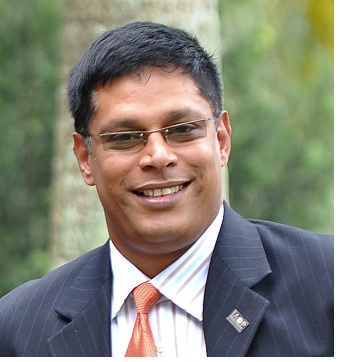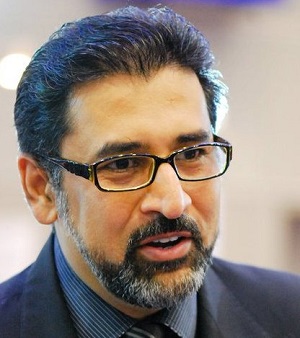Disrupt: Outsourcing players just not hungry enough
By Karamjit Singh April 29, 2013
- If companies are content with where they are at, why keep pouring in more resources to help them?
- How can you possibly have ‘lack of hunger’ in the same sentence as ‘entrepreneur’?
 AT the very first DNA-TeAM Disrupt session last September, I told the audience that the size of the crowd attending our monthly sharing and growing sessions would not dictate the success of the event.
AT the very first DNA-TeAM Disrupt session last September, I told the audience that the size of the crowd attending our monthly sharing and growing sessions would not dictate the success of the event.
“It is all about the quality of the discussion and the sharing which will dictate whether these sessions are worth the time of those who come,” I said then.
And so it has proven to be true. Last week’s Disrupt on ‘Outsourcing: Has Malaysia missed the boat?’ drew the smallest audience thus far, yet the discussion between the panellists was the most powerful and candid we have seen so far at any of our sessions.
An audience member who had been to a few previous topics thought so, as did my Digital News Asia (DNA) co-founder A. Asohan.
What I found interesting was how two of our panellists, Bobby Varanasi of Matryzel Consulting and Munirah Looi of Brandt Consulting, both felt that a big part of the problem facing the sector is the lack of hunger from the entrepreneurs themselves. Munirah is also on the Outsourcing Malaysia committee.
What concerns me is that this lack of hunger displayed by our outsourcing companies comes against a backdrop of a very supportive government which has done a lot for the sector.
Which begs the questions, if the companies are content with where they are at, why keep pouring in more resources to help them?
And now, according to Munirah, after an extensive global benchmarking done on the companies (some of which had to be cajoled into participating) at government expense, certain companies that stand out from a group of 30 are going to be blessed with even more largesse from our supportive government to go global.
The question we all have to ask is, will pumping in even more support to the identified companies make their CEOs any hungrier?
That’s a big bet the Malaysian Government is taking and one that goes against the advice of Sid Khanna, who in 2004 told me that the best thing the Government could do to help local outsourcing companies is to not get involved in the sector and let the companies sink or swim based on their capabilities.
 Khanna was at the time global managing partner of outsourcing for Accenture. I guess he should know what he was talking about.
Khanna was at the time global managing partner of outsourcing for Accenture. I guess he should know what he was talking about.
As it is, I am already struggling to accept Varanasi (pic) and Munirah’s opinion that the entrepreneurs are not hungry. That in itself seems quite an oxymoron. How can you possibly have ‘lack of hunger’ in the same sentence as ‘entrepreneur’?
Well, these entrepreneurs in question already run service companies in the outsourcing sector, mainly in the call centre, financial services and information technology outsourcing space.
They are successful to varying degrees and are happy to chug along with their mostly short-term contracts. But there is apparently no risk-taking and no innovation in them.
Just hear what Varanasi and Munirah said. “You have excellent leaders in India, Brazil and the Philippines who know how to create a business model and plug it into client needs, but I do not see that in most South-East Asian countries … I do not see that in Malaysia,” said Varanasi, who then offered an intriguing thought on why this was.
“Malaysia has a centuries-old trading history. This is a problem today because it has created a trading mentality and when it comes to leadership, trading skills supersede competencies.”
This manifests itself in the way outsourcing companies offer value to clients. Instead of offering solutions for their pain points based on deep knowledge of their business, the outsourcing company offers solutions from a suite of existing products they already have.
 Varanasi pointed out that outsourcing is a service delivery model not a sales model, but Malaysians in that space have not understood this reality yet.
Varanasi pointed out that outsourcing is a service delivery model not a sales model, but Malaysians in that space have not understood this reality yet.
“We have leaders [in the Malaysian outsourcing companies] who do not think global, think they are good at what they do, are comfortable and not hungry enough to take the risks required and drive the innovation needed to compete on the global stage,” was Munirah’s (pic) blunt assessment.
Worse is the fact that all the companies in the outsourcing space look upon Outsourcing Malaysia as their marketing arm and even expect it to bring in deals for them. That would be akin to all media outlets expecting the National Press Club to bring in advertising revenue for them!
In the case of Outsourcing Malaysia, it has channelized a lot of deals for members, noted Varanasi, but dismally, not a single deal has been closed by the vendors who conveniently blame the industry body. At the same time, Outsourcing Malaysia too has inadvertently positioned itself as a sales arm for the vendors.
And now we have the Government stepping in to help even more. The feeling seems to be that since Malaysia has so many things going for it in the outsourcing sector, as evidenced by the many multinationals that have their shared services operations in Malaysia, that local companies have a chance to step up and win this business for themselves.
 Not so, said our third panellist Gurpardeep Singh (pic), vice president of operations at the Asia Pacific University of Technology & Innovation. “We don’t seem to have realised that we have lost all four of (our) competitive edges.”
Not so, said our third panellist Gurpardeep Singh (pic), vice president of operations at the Asia Pacific University of Technology & Innovation. “We don’t seem to have realised that we have lost all four of (our) competitive edges.”
He was referring to the wide use of English, relatively low wages, a large pool of science and technology graduates, and a large indigenous domestic services industry.
And he observed that, matching our entrepreneurs, even our students pursuing technology-related degrees are less hungry than the foreign students at his university. Out of the 6,000 students in the various tech programmes, 70% are international students.
Gurpardeep has been with the university since its launch 18 years ago, giving him the credibility to make such a comparison between the two groups.
And yet, The Malaysian Government sees value in deepening its intervention in the sector, which flies in the face of logic. I just hope it knows something I don’t.
And I also hope that the Government is transparent in how it is going to help the chosen companies. Let’s put a dollar value to each of the companies it is going to help and let us measure the bump these companies get in revenue, say three years down the road. What do you think?
Related Stories:
Disrupt: Outsourcing in Malaysia still in ‘slave-master’ mindset
Same challenge for Malaysian outsourcing
Outsourcing Malaysia getting stale with plans, unrealistic with targets
Manila, Cebu among top BPO destinations
For more technology news and the latest updates, follow @dnewsasia on Twitter or Like us on Facebook.


